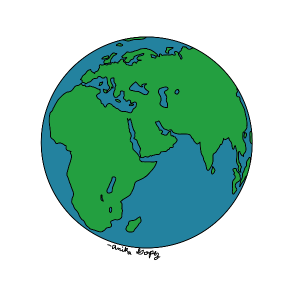Farnaz Fassihi (she/her)
By Shahub Khodabandehlou

Farnaz Fassihi was born in 1971 in the United States to Iranian parents. She was
shuttled back and forth between Tehran, Iran, and Portland, Oregon for much of her
upbringing. She is an alumni of Lake Oswego High School, in Oregon, but her college
education includes her being a part of both the Columbia University and Harvard
University alma maters. Fassihi earned a Master of Journalism from Columbia
University and is a holder of the Nieman fellow at Harvard University, where she studied
the rise of Iran’s Revolutionary Guard Corps, and their focus on how they in addition to
other Islamic militants sought to divide make use of modern technologies in order to
both improve their own side through recruitment and organization, but also crush their
opposing side through influence and suppression, among other means. Some of her
distinctions include the Robert F. Kennedy Award for best international reporting in print,
several Pulitzer Prize nominations, and over a dozen more national journalism awards.
She is also the author of “Waiting for an Ordinary Day: The Unraveling of Life in Iraq,” a
book which details the lives of the disenfranchised as they come to terms with the reality
of an Iraq post-execution of Saddam Hussein.
Fassihi is an Iranian-American journalist who, for over 20 years, has covered all
sorts of wars and uprisings across the Middle East, in places like Iran, Afghanistan,
Israel, the West Bank, Turkey, Syria, and more. She is the United Nations Bureau chief
for the New York Times and was a senior writer and war correspondent for the Wall
Street Journal for 17 years, based in the Middle East. In addition to war coverage, she
also conducted a two-month investigation into Iran’s #MeToo movement, revealing
broke the story of the Mahshahr Massacre, reconstructing in grim detail how Iran shot
down a Ukrainian International Airlines Flight and then lied about it for several days.
Later that year, she additionally worked on a joint investigative project between the New
York Times and The Intercept titled, “The Iran Cables,” which exposed hundreds upon
hundreds of leaked intelligence reports, shedding light on Iran’s interference and
struggle to gain influence and power in Iraq.
Earlier in her career, while with the Wall Street Journal, she covered the
gruesome conflicts in the US-led invasion of Afghanistan. Additionally, she was a lead
reporter in the award-winning investigative project called “Censorship Inc.,” which was a
chain of stories that examined how western technologies were empowering
authoritarian countries to censor their own people. She has also been seen on various
television and radio news shows such as CNN, MSNBC, etc. as a commentator.
Fassihi has risked her own life to be on the front lines of war and conflict for her
entire life, dedicating her life to finding the truth about large governments and sharing
the stories of small, everyday people.

